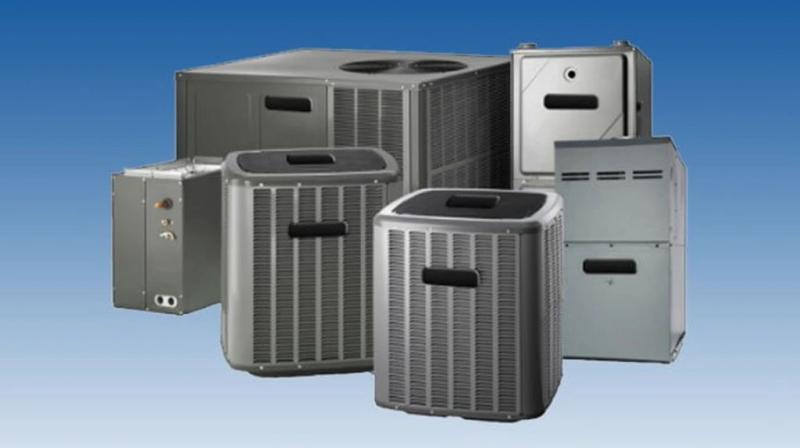Upgrade Your Comfort: Top Considerations When Choosing A New HVAC System

Choosing a new HVAC system is a significant decision for any homeowner. It impacts your comfort, energy efficiency, and overall living environment. With various options available, understanding the key factors can help you make an informed choice. This article explores the top considerations when selecting a new HVAC system, ensuring you achieve the best performance, cost, and efficiency balance.
Assessing Your HVAC Needs
Home Size and Layout: One of the first steps in choosing an HVAC system is evaluating your home’s size and layout. A system that’s too large or too small won’t operate efficiently. An HVAC professional can calculate load to determine the right size based on square footage, insulation, window sizes, and other home-specific factors. This is crucial because an oversized system will cycle too often, causing more wear and higher energy bills. Conversely, an undersized system will struggle to maintain the desired temperature, resulting in poor comfort and inefficiency.
Climate Considerations: Your local climate is crucial in selecting the right HVAC system. Homes in extreme temperatures need robust systems, while milder climates may benefit from simpler solutions. For example, hot and humid areas require a high-efficiency air conditioner with strong dehumidification. In colder climates, a powerful heating system like a gas furnace or heat pump is essential. Understanding your climate’s demands ensures you choose a system that maintains comfortable indoor temperatures year-round, enhancing your home’s livability and energy efficiency.
2. Types of HVAC Systems
Central Air Conditioning and Heating: Central HVAC systems are common in residential properties. Using ductwork, they distribute air for consistent heating and cooling. They are efficient for larger homes but less effective in properties with poor ductwork or air leakage. Modern systems often include features like variable speed blowers and multi-stage compressors, improving efficiency and comfort by adjusting output to the home’s needs. AC Services Los Angeles
Ductless Mini-Split Systems: Ductless mini-split systems are perfect for homes without ductwork or for room-specific climate control. They feature an outdoor unit connected to one or more indoor units for targeted heating and cooling. They are energy-efficient and flexible but may have higher upfront costs. A major advantage is their zoning capability, allowing different rooms to be heated or cooled independently, saving energy and enhancing comfort.
Heat Pumps: Heat pumps are versatile systems that provide both heating and cooling by transferring heat between the indoors and outdoors. They are highly efficient, particularly in moderate climates. However, their performance can diminish in extremely cold temperatures, so supplemental heating sources may be necessary. Advances in heat pump technology, such as the development of cold-climate heat pumps, have extended their applicability to colder regions, making them a viable option for a broader range of climates. Air Conditioning Repair Los Angeles
Hybrid Systems: Hybrid HVAC systems combine traditional heating methods like a furnace with a heat pump. They switch between technologies based on efficiency and cost-effectiveness. Ideal for regions with fluctuating temperatures, hybrid systems automatically choose the most energy-efficient mode depending on the weather. This flexibility can lead to significant cost savings and increased comfort year-round.
3. Energy Efficiency
SEER and HSPF Ratings: When evaluating HVAC systems, focus on energy efficiency ratings. The Seasonal Energy Efficiency Ratio (SEER) measures cooling efficiency, while the Heating Seasonal Performance Factor (HSPF) assesses heating efficiency. Higher ratings mean better energy performance, lower utility bills, and reduced environmental impact. A high SEER rating is key in areas with long, hot summers, and a high HSPF rating is essential for regions with extended heating seasons. Duct AC Services Los Angeles
ENERGY STAR Certification: Look for HVAC systems with ENERGY STAR certification. This designation indicates that the system meets or exceeds federal energy efficiency standards. ENERGY STAR-certified systems are designed to consume less energy, providing significant savings over the system’s lifespan. These systems often come with advanced features such as enhanced filtration, variable speed motors, and improved heat exchangers, which contribute to better performance and higher energy savings.
Initial Investment: The upfront cost of an HVAC system is a significant consideration. Central systems generally have lower initial costs compared to ductless mini-splits or heat pumps. However, it’s essential to balance initial expenses with long-term benefits such as energy savings and durability. Investing in a high-efficiency system may have a higher initial cost, but the reduction in energy bills and the extended lifespan can make it a more economical choice over time.
4. Cost Considerations
Operating Costs: Consider the ongoing operating costs of your chosen system. Energy-efficient models may have higher initial prices but offer substantial savings on utility bills. Additionally, regular maintenance and potential repair costs should be factored into your decision-making process. For instance, systems with advanced filtration may require more frequent filter changes, while high-efficiency systems might have more complex components that could lead to higher repair costs.
Comments